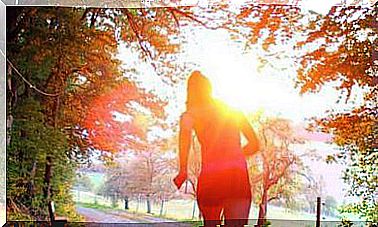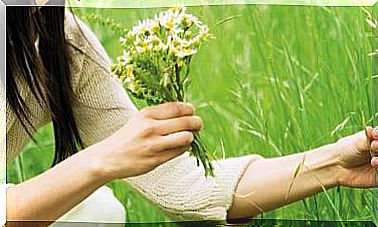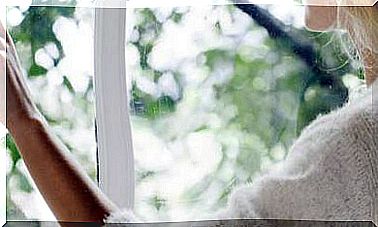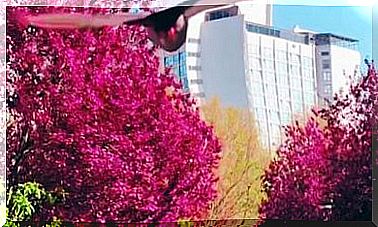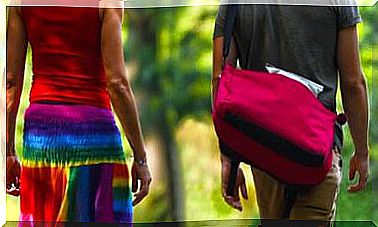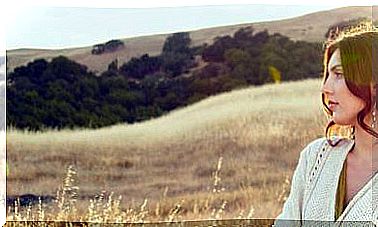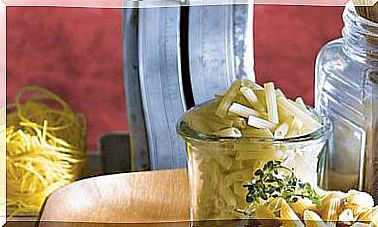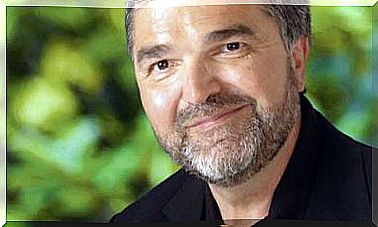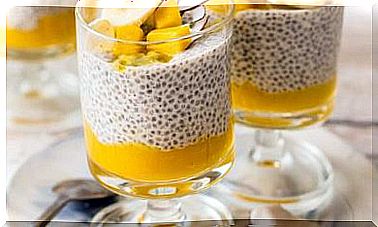“Simplicity Is Essential For A More Just And Happy Society”
Only with it can happiness be achieved and a future is guaranteed for the planet, says this former monk.
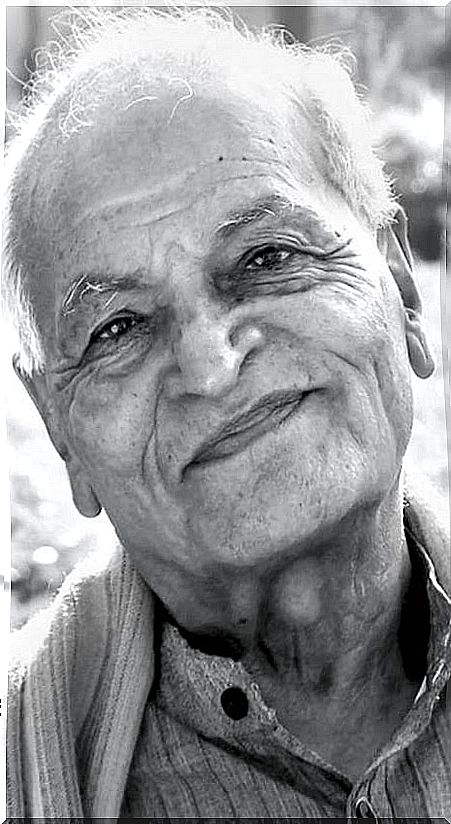
At 84 years old, Satish Kumar, overflows with energy and is always accompanied by a welcoming smile. Perhaps having given up his home, his mother, and his siblings at the age of nine, to become a Jain monk, has given him this ability to be grateful for what each moment brings him.
He was born in Dungargarh (India) in 1936. He was a Jain monk, founded and still directs the Schumacher College, directs the magazine Resurgence & Ecologist… He confesses that he learned to trust humanity during the almost 13,000 km of the March for Peace (against nuclear weapons) that took him from New Delhi to the grave of John F. Keneddy in 1962. He has lived in England since 1973.
We interviewed Satish Kumar in Barcelona, where she went to spread the message of her book Elegant simplicity (Icaria, 2018).
“Our society educates us to work, but it does not teach us to live”
“Is it really possible to simplify our lifestyle?”
—Precisely because we have a complicated world and a stressful way of life, it is more necessary than ever to begin to simplify it. In the end, life is mostly about being happy, and stress, excessive work and obligations and not having time for anything are at odds with happiness. Simplicity is an essential requirement to be happy.
But we also face the challenge of global warming due to the pollution and waste we generate and we can only reverse it with a more sustainable life.
“It’s reasonable …
– Simplicity would also create a more just society, the opposite of the current one, in which only a few (Europeans, Americans, Japanese, Chinese, a few in India and a few in Africa) have a lot while the others have almost no any.
Simplicity is essential for happiness, for the future of the environment, and for a better society. It is the most important challenge of our time.
“But how do you convince the rich to give up their wealth?”
“Even the richest people want happiness.” You have to ask them: Does having so many material goods –which take time away from walking, writing, reading, being with your partner and your children– really give you happiness?
Rich people suffer from a shortage of time and spiritual poverty. The question is whether they prefer material well-being and remain poor in spirit or material simplicity and spiritual wealth.
“Isn’t it proclaiming poverty?”
—When I speak of simplicity, I do not mean poverty, but a more beautiful, conscious and elegant lifestyle. Currently, to produce more we sacrifice beauty in clothing, food, buildings … We must be aware of this and tend towards mental, physical and spiritual simplicity, and to achieve this, education is essential.
“Is that what you teach at Schumacher College, the university you founded in 1990?”
—We teach holistic science, holistic economics, and green design. All students participate in the tasks of cooking, cultivating and cleaning the house, and they meditate every day.
In our society we are educated to find a job, but we are not taught to live. So instead of living, we work. We work too much, we spend too much, and we have too much. What I propose is: work less, spend less, own less and enjoy more than what you have, which is a lot.
“It’s a good program …
“The world does not lack anything, but that does not mean that you have to have everything.” It is important to spend time enjoying nature and creating with our hands instead of buying everything. The education should be taught how to build a house, how to cook, how to make furniture, how to paint pictures …
We are makers, artists, and not mere consumers. When you create something with your hands, you are creating beauty. If there were more artists and artisans, we would enjoy higher quality and beauty in all areas.
“And what role does meditation play in this transformation?”
“Only with time for myself can I find out who I am and what my purpose in life is.” It is what helps us determine meditation by inviting us to look within, contrary to what society encourages, which leads us to always focus our attention on the outside.
It is also simplicity to recover the connection with oneself to discover how to live and how to give back to the world everything received: a body, a language, a culture, music, art, nature, the sun, the trees, the fruits, the water, a house …
“How do you get it?”
—The question to be asked is: What will be my contribution to the world to thank all these gifts ? The universe is governed by a continuous movement of giving and receiving; However, most people dedicate themselves to receiving without giving anything and when they give it is in exchange for money; that is, to receive more.
We teach and heal for money while the goal of our work should be to offer our personal gift to the world. The self-knowledge that meditation facilitates allows us to discover who we are and what we have come to give, so that our interior is more in harmony with the exterior life. Because the interior and the exterior are two sides of the same coin.
“And what is your contribution?”
My everyday life is full of simplicity. I have a few acres of land and I am dedicated to growing apples, strawberries, blueberries, tomatoes, potatoes, asparagus, onions, carrots… I am fascinated by picking up the land, holding the seeds in my hands and watching them grow. The observation of this process fills me with satisfaction. Being a farmer it is easy to live simply.
I really like to cook. I make pizzas with onions from the garden, with tomatoes … I bake my own bread, I make my pasta … And I also teach and write articles or books. I am a vegetarian and fast. Many days I don’t have breakfast and, from seven in the afternoon (dinner), I don’t eat anything until noon the next day.
—Is it important to be a vegetarian to live simply?
-Yes. In addition to being healthy, a vegetarian diet is more sustainable. Food derived from animals requires more resources and land to produce. Following a vegetarian diet reduces the risk of obesity and diseases in general and allows you to have more vitality, more energy.
A vegetarian diet is better for the body and for the spirit. At school they ask me: “What is your favorite animal?” “The elephant”, I answer because, although huge, he is a vegetarian. “What is your second favorite animal?” They ask me. “The horse, because it is vegan and yet overflows with power and strength,” I reply. Like these animals, humans don’t need to eat meat to feel strong and energetic.
– What important belief should be changed to develop a more sustainable world?
– Stop believing that human beings are different from trees, mountains, rivers, oceans, animals … Human and nature are one, there is no separation. It is something that boys and girls should learn from infancy. This way they would avoid polluting the air and filling the oceans with plastics, they would stop deteriorating forests, being cruel to animals … Only with this could many benefits be achieved for the planet.
—With the perspective of your 82 years, what advice do you always keep in mind?
—After feeling one with nature, it is vital to stop behaving like tourists to be pilgrims of the world. Tourists only seek to satisfy themselves, while pilgrims celebrate what is provided.
A pilgrim accepts without having any expectations; In contrast, the tourist has so many expectations that he is never satisfied or celebrates anything. Through the simplicity that I advocate, we will be able to become pilgrims because, in addition to being practical, my book is spiritual.
“Are you optimistic about the future?”
-Yes. We still have time to change. We have little time, but we have before us an open window, an opportunity. That is why I have written this book: to raise awareness and say to the world: “Let’s seize this opportunity! If we don’t, it will soon be too late.”
